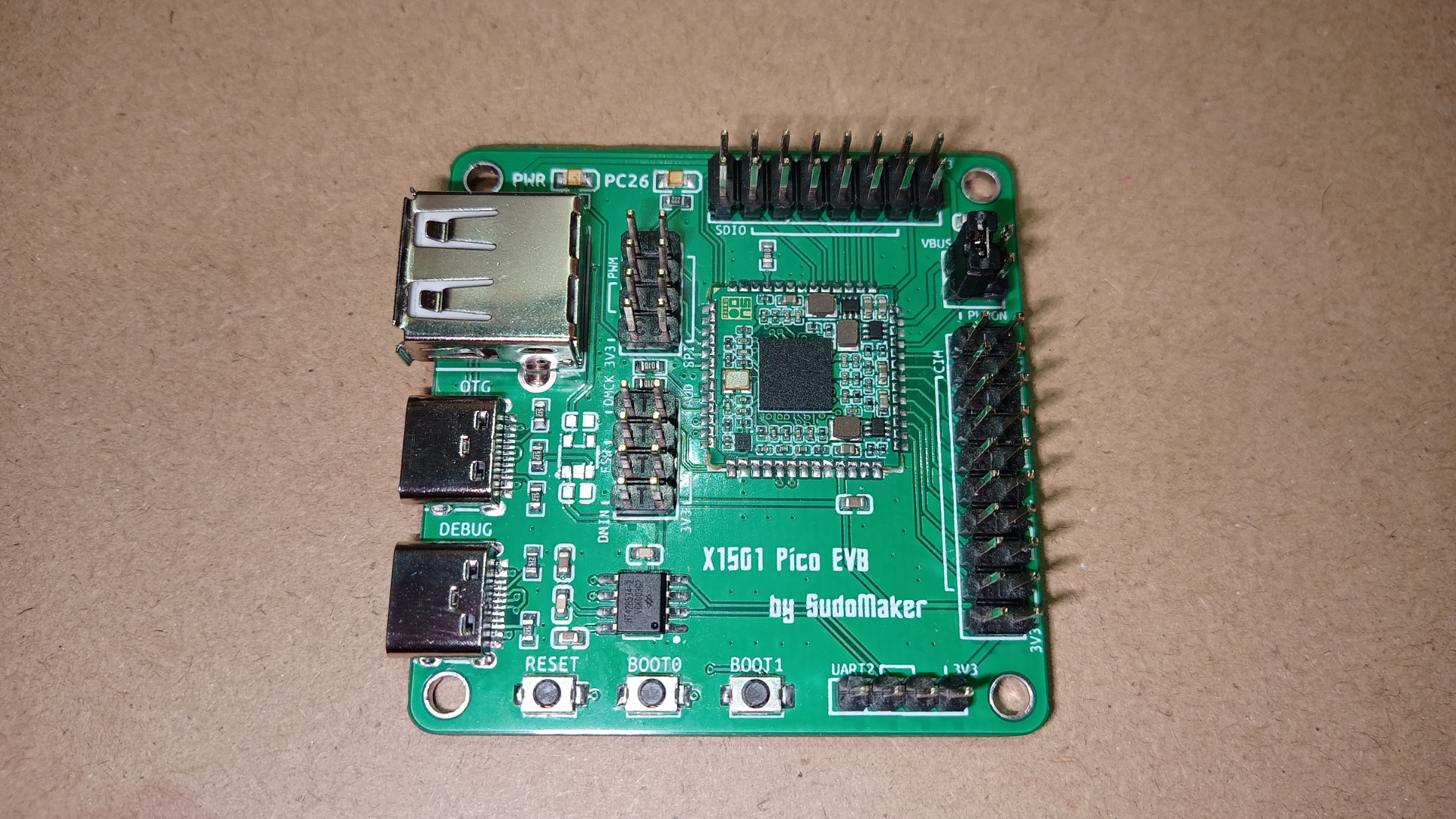
Linux, the discerning user's choice, is famous for its ability to scale down to a minuscule size. Here to prove it are two itty-bitty modules running Linux with only single-digit megabytes of RAM, displayed in a classic example of Twitter oneupmanship.
Microsoft's Azure Sphere modules are full microcomputers smaller than a desktop CPU, which contain only 4MB of SRAM right on the processor die and run Microsoft's own Unix-like Azure Sphere OS to power the Internet of Things (IoT). But SudoMaker's X1501 Pico SoM has a whole 8MB of RAM, a twice-as-fast processor, and is a complete SoM unit with I/O and interfacing at 1/3rd of the surface area of the Azure Sphere modules — and unlike Azure Sphere modules, the X1501 Pico can even run DOOM.
Another case of modern Linux on a very small system: Azure Sphere https://t.co/3i0JrKWUjZ4MB of SRAM, running Linuxhttps://t.co/uee331VB2K256KB RAM allowed for non-OS apps running on Linux, and 1MB flash https://t.co/TwuzWd6xoTMay 5, 2024
Azure Sphere — Microsoft's IoT platform runs on Linux
Microsoft's Azure Sphere project is based on the MT3620 chip: a 22mm x 33mm MCU (microcomputer unit) with 4MB of SRAM — a faster, low-power variant of RAM that lives on the processor die and can retain memory bits as long as power is supplied (contrast with DRAM, which requires continually refreshing). The MCU gives only 256KB of this RAM to non-OS apps, and 1MB is used as flash memory shared between high-level and real-time applications. The MT3620 gets processing power from a 500MHz ARM Cortex CPU and holds 2.4/5 GHz WiFi connectivity, essential for its purpose of enabling the Internet of Things.
The MT3620 is solely designed for Microsoft's Azure Sphere platform, a system for communication and security features between internet-connected devices like appliances. This service connects parts of the Internet of Things together to maximize communication. Microsoft's example use case of Azure Sphere is for a manufacturer who sells internet-connected appliances; say the manufacturer sells WiFi-connected fridges and wants a system that remotely updates and monitors the health of its appliances. The MT3620 chip goes into the fridge and can interface with the Azure Sphere service, where it provides internet security for the fridge, ensuring no malicious actors can access the fridge's data, and can get firmware updates securely from the manufacturer or ping HQ if the fridge detects a malfunction.
Qualms with the IoT and the silliness of having a fridge with WiFi aside, the MT3620 is a crazy bit of computing. It runs full-fat Linux on a mini-system only a little bigger than a silver dollar, with full network connectivity to boot. But with so little memory and such a hyper-specific purpose, it is unlikely that the MT3620 can be flashed with a custom kernel or leveraged for use outside of the Azure Sphere ecosystem. For any level of custom personal computing, you'll need to turn to our other featured project.
SudoMaker X1501 Pico SoM — the "smallest SoM that can run mainline Linux"
SudoMaker's upcoming X1501 Pico project is fairly different from the MT3620 chip, and perhaps more impressive. For one thing, it's got more power: an InGenic X1501 processor that runs at up to 1 GHz and a whole 8MB of RAM living on the processor package. The X1501Pico SoM is also different from the MT3620 because unlike Azure Sphere's MCU, X1501 Pico is a full system on module, so instead of needing to be integrated into a dishwasher to do its job, you can buy an X1501 Pico and have a full mini-computer ready to turn on, plug in a keyboard, and throw in your 800KB of user code (once it becomes commercially available, of course; SudoMaker has yet to begin its eventual crowdfunding project for the SoM).
In the embedded tweet above, the X1501 Pico SoM can be seen running a heavily modified Linux 6.1 and operating well below its memory ceiling by the product's designer. @ReimuNotMoe, the designer in question, claims in the thread above that "yes it can play Bad Apple and Doom, run GBC emulators, PICO-8 (via FAKE8) etc."; we have yet to see proof of this claim on video but there is little reason to doubt these claims; rest assured that we will update the story with DOOM gameplay as soon as possible.
The X1501 Pico SoM is by far the smallest SoM we've seen yet, and with claimed performance surpassing any of its competitors including the Raspberry Pi Pico, we're excited to see it cook once it releases. For now, we only have teasers on Twitter and its Hackaday page, but once its crowdfunding round starts imminently, we will see an exciting event after the market can get its grubby hands on the computer.
Tom's Hardware are big fans of the Raspberry Pi Pico, so it will take a lot for this up-and-coming SoM to take it out of our hearts. Before it releases, you can see all of our featured projects with the Pi Pico here, and get excited for the future of tiny little computers. For another example of pushing hardware way past its limits with the help of Linux, be sure to check out how this hardware hacker ran GTA: Vice City on a TP-Link router.







